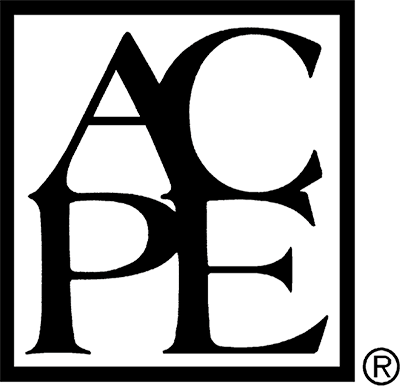SKU:
CEI-IMMUNIZATION-1743984000-ON-DEMAND-PH-8280
Course Completion: To receive CPE Credit (self-study 19 hours; virtual assessment 1 hour) and a Certificate of Completion, pharmacists must complete Modules 1-8, successfully pass (70% or above) the 100-question self-study examination, complete the self-study evaluation, participate in a virtual assessment, show satisfactory demonstration of ability to administer vaccines and complete the workshop evaluation.
Technology Requirements: The online self-study Modules #1-8 are in written format and include videos through an online interactive platform. To ensure the highest quality delivery of this activity, a reliable high-speed internet connection is required. Problems may be experienced with some wireless connections where signal strength is variable or low.
Target Audience: For pharmacists and student pharmacists who are interested in learning the information and obtaining the skills necessary to become vaccine educators, facilitators, and immunizers.
Fee Information: $450 – Includes educational programming totaling 2.0 CEUs/20 hours of continuing pharmacy education (CPE) credit, access to online handouts and materials for Modules #1-8, a CPE Statement of Credit through CPE Monitor, and a Certificate of Completion following successful completion of all activity requirements.
State of Florida Participants: This course is approved by the Florida Board of Pharmacy. If you practice in the state of Florida, you must self-report CE through CE Broker. Please use the CE Broker course number 20-731022 to locate the course when self-reporting CE to CE Broker. For instructions, follow this link: https://help.cebroker.com/hc/en-us/articles/15226550796948-How-to-Report-Continuing-Education
Cancellation Policy: Registration must be completed online via credit card payment at least two weeks prior to the date selected for virtual assessment. Learners may be refunded the course fee (less a $50 administrative fee) if canceling prior to completing the course evaluation for the home-study portion of the training. Once the course evaluation is submitted, the course is non-refundable. If unable to attend a previously scheduled virtual assessment, contact CEimpact at team@CEimpact.com at least 2 business days prior to the scheduled assessment to reschedule. Late cancellations or failure to attend the virtual assessment as scheduled will result in an additional $100 fee. Both the on-demand and live components of the training must be completed within 6 months of initial course enrollment, and prior to the course expiration.
Reassessment Policy: Please note that a $100 fee will be assessed if the immunization assessment requires repetition.
Course fee includes course materials and CPE credit submission to CPE Monitor.
Course is non-refundable.
Recording, capturing, or sharing any part of this presentation is strictly prohibited. This includes the use of AI note-taking tools, audio/video devices, or screen capture technology. Please help us protect the privacy of our speakers and the integrity of the educational content.
Copyright July 2009, CEimpact (Last revised: January 2025). All Rights Reserved. Any reproduction of this course without express permission is strictly forbidden.
ACPE Details
Universal Activity Number (UAN): 0107-0000-25-143-H06-P
Application-based CPE Activity
Release Date: April 6, 2025
Planned Expiration Date: April 7, 2028
 CEImpact is accredited by the Accreditation Council for Pharmacy Education as a provider of continuing pharmacy education. Obtain CPE credit by completing the course, followed by the exam and evaluation (if applicable). Once successfully completed, your course will appear in your Completed Courses tab. Access your CPE statement of credit at www.MyCPEMonitor.net.
CEImpact is accredited by the Accreditation Council for Pharmacy Education as a provider of continuing pharmacy education. Obtain CPE credit by completing the course, followed by the exam and evaluation (if applicable). Once successfully completed, your course will appear in your Completed Courses tab. Access your CPE statement of credit at www.MyCPEMonitor.net.
¹CEImpact provides you with two (2) opportunities to complete the exam. The learner will not receive CPE credit after two failed attempts.
